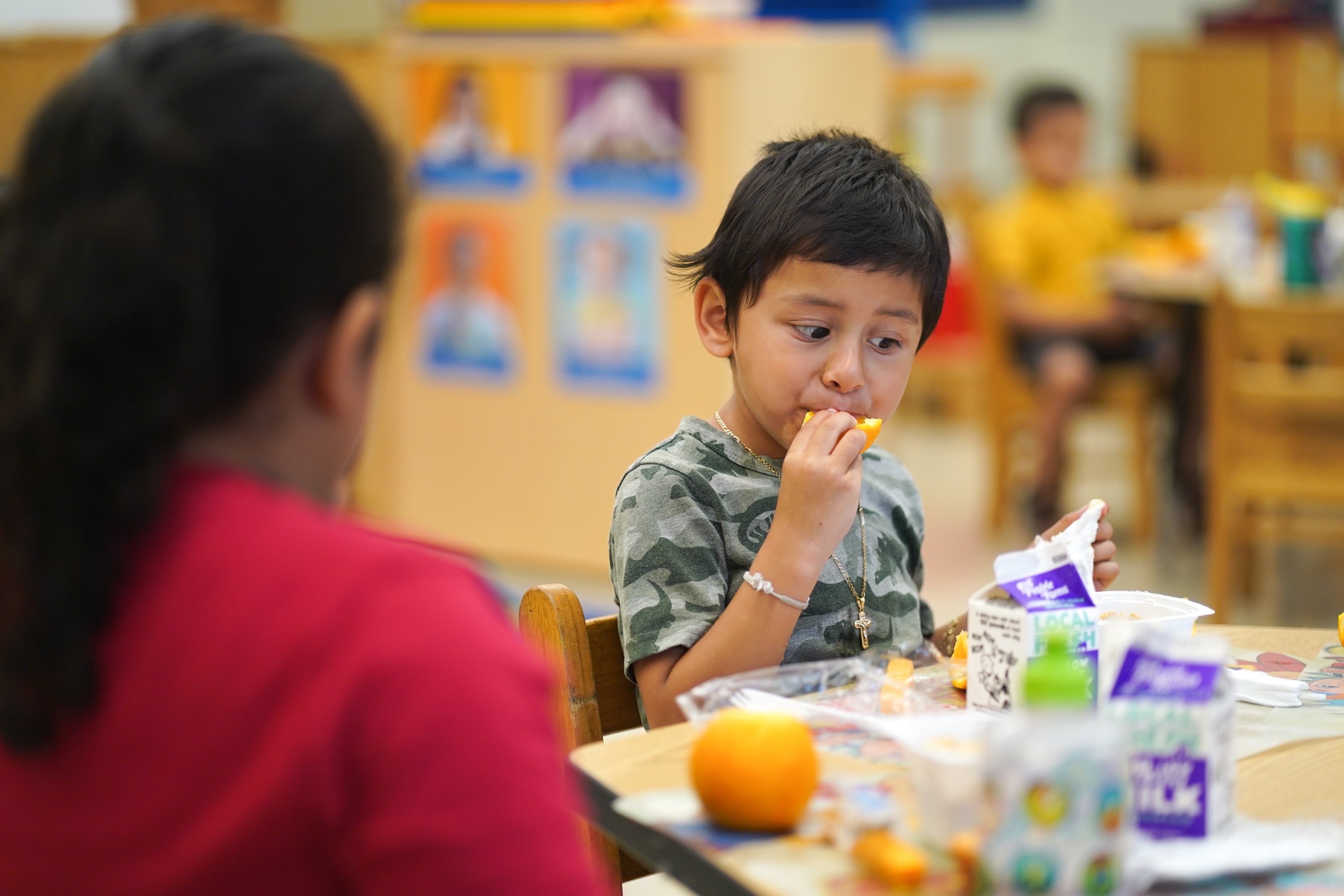Sign up for Chalkbeat Chicago’s free daily newsletter to keep up with the latest news on Chicago Public Schools.
This story has been updated with a statement from the U.S. Department of Agriculture.
The U.S. Department of Agriculture has canceled a $26.3 million federal grant that would have helped Illinois K-12 schools and child care centers purchase food from local farmers for school meals and snacks, the Illinois State Board of Education said Wednesday.
The federal government canceled funding for the Local Food for Schools and Child Care Cooperative Agreement on March 7, the state board said in a press release. A termination letter from the USDA’s Agricultural Marketing Service obtained by Chalkbeat Chicago said the department “determined this agreement no longer effectuates agency priorities and that termination of the award is appropriate.”
The state board said in the press release that it signed an agreement with USDA for the grant on Jan. 30. The board said the grant would have gone to over 4,000 schools and 1,200 child care centers, with $17.8 million going to schools and $8.5 million to child care institutions over the next three years.
A USDA spokesperson said in a statement that the end of the Local Food Purchase Assistance Cooperative Agreement Program “isn’t an abrupt shift” and that last week, the department released over a half a billion dollars for local fund purchasing programs.
“With 16 robust nutrition programs in place, USDA remains focused on its core mission: strengthening food security, supporting agricultural markets, and ensuring access to nutritious food,” said the statement.
The cancellation of funding for the Illinois food program is part of nationwide cuts by the U.S. Department of Agriculture. Politico reported that the USDA halted about $660 million of funding for the Local Food for Schools Cooperative Agreement, which helped local schools around the country purchase fresh food from local farmers.
The Trump administration has terminated federal contracts and slashed staffing at federal offices since taking office in January. In February, billionaire Elon Musk’s Department of Government Efficiency — which is not a federal agency — terminated dozens of U.S. Department of Education contracts meant to support education research. Just a few days ago, the Trump administration announced that it is cutting the U.S. Department of Education workforce by almost half.
In Wednesday’s press release, State Superintendent Tony Sanders called the decision to cut the USDA grants “deeply disappointing.”
“These grants were designed to ensure that students in our schools and child care centers have access to fresh, locally-sourced food while also supporting our state’s agricultural economy,” Sanders said. “This funding was essential to provide Illinois schools and child care sites with nutritious meals that fuel learning and growth.”
However, in the press release, the state board said its “Local Food for Schools” grant for $7.4 million is still available to schools through Jan. 31, 2026. According to the state board, the grant has helped over 2,000 schools to purchase food from 138 local farms and ranches.
Samantha Smylie is the state education reporter for Chalkbeat Chicago covering school districts across the state, legislation, special education and the state board of education. Contact Samantha at ssmylie@chalkbeat.org.







